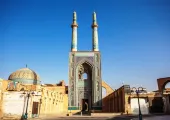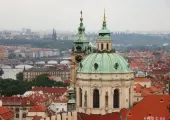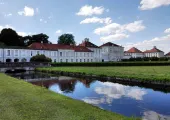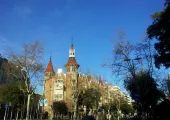Architectural Landmarks: 10 Amazing Buildings Around the World
Designing, planning, and building the structures we inhabit is the job of architects the world over. Marrying form and function, they seek to balance complex and often contradictory imperatives. Styles range the gamut from subdued to ostentatious. In seeking to highlight amazing architectural treasures from around the world, we looked far and wide to showcase a diverse range. Spanning nearly every continent, these represent among the finest buildings and landmarks on offer. These are 10 amazing architectural landmarks from around the world.
Sagrada Familia, Barcelona, Spain
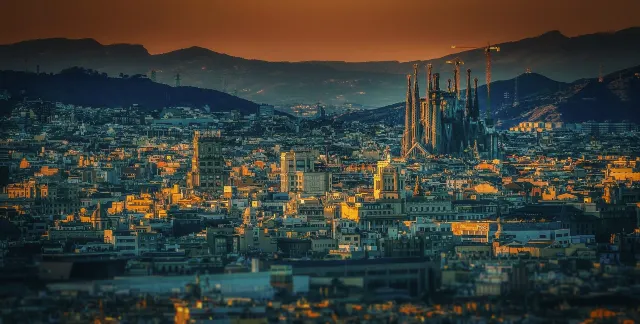
Sagrada Familia perhaps best known for its attachment to famed Spanish architect Antoni Gaudi. His visionary designs are breathtaking and, some argue, unique in the history of church construction. Gaudi’s interpretation of Gothic style combines excuentated curves and elements from Art Nouveau. Sagrada Familia was Gaudi’s masterwork. Following his untimely death in 1926, he was laid to rest in its crypt. The cathedral remains a work in progress with construction occuring in fits and starts, often delayed during years of political tumult in Spain. Efforts are underway to bring the project to completion in time for the centenary of Gaudi’s death in 2026. Visitors can tour the cathedral most days. Be sure to also budget time to see Gaudi’s other impressive works scattered around Barcelona.
Taj Mahal, Agra, India
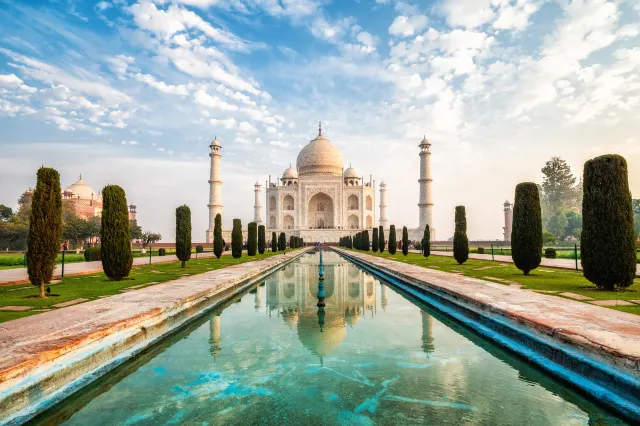
India’s most recognizable cultural landmark was built in the mid-17th century as an ornate mausoleum complex for Mumtaz Mahal, wife to the Mughal emperor Shah Jahan. Located in Agra in India’s most-populous state, Uttar Pradesh, the Taj Mahal is one of the most revered architectural masterpieces in all the world. Make sure to also tour Agra Fort, a former residence for Mughal Dynasty emperors. From the fort you can visit the monumental Delhi Gate before walking through Taj Garden and Mumtaz Park on your way to the Taj Mahal. The temple’s outer gardens are great places for pictures. With its long history and rich cultural treasures, Agra is a fantastic place to simply wander around. Budget-minded travelers will find this an attractive destination with lots to offer.
Palace of Versailles, Versailles, France
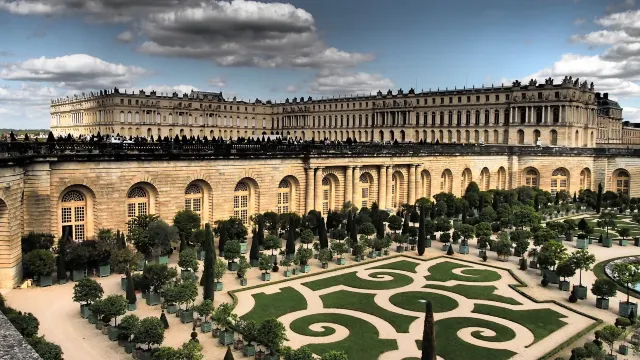
Versailles was the primary residence for French royalty between 1682 and the start of the French Revolution in 1789. Located roughly 20 kilometers southwest of central Paris, it is a marvelous palace with enormous gardens perfect for a leisurely stroll. Easily accessible via Line C on the Paris commuter rail service known as the RER, it’s a convenient day trip that’s well worth it even if you don’t tour the palace itself. Many tour routes are available and you might want to plan ahead to discover what you’d like to see. Highlights include a royal carriage tour where you can see the exceptional collection of historic coaches, sedans, and sleds. There’s also the palace marvels tours, which will take you through the most famous locations including the King’s Bedchamber, the State Apartments, and the Hall of Mirrors.
Forbidden City, Beijing, China
Along with the Great Wall, the Forbidden City is China’s most famous cultural landmark. As the imperial palace during the Ming and Qing dynasties, the Forbidden City has long occupied a central place in Chinese history. The entire complex comprises nearly 1,000 seperate buildings, only a fraction of which are open to the public. Today, the Forbidden City is officially a part of and run by the Palace Museum, which curates exhibitions and artifacts from the Ming and Qing periods. A common misconception is that the entrance to the Forbidden City is through the Gate of Heavenly Peace (aka Tiananmen). In actuality, the Meridian Gate leads across the moat and into the Forbidden City proper. Visitors are required to purchase tickets online ahead of time in order to comply with the Chinese government’s real-name registration system.
Solomon R. Guggenheim Museum, New York City, USA
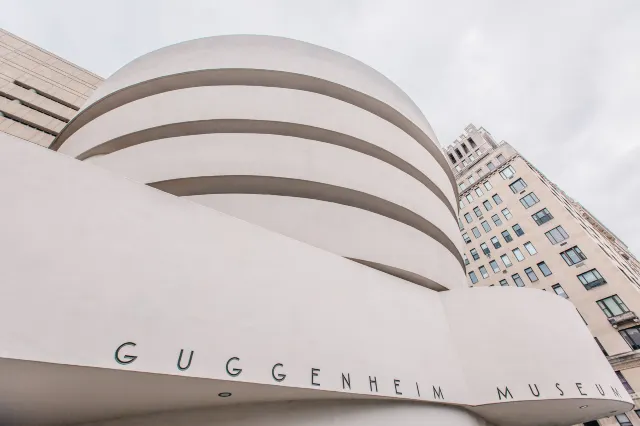
The Guggenheim is a fantastic art museum located on Fifth Avenue at 89th Street. The iconic building, designed by Frank Lloyd Wright, is ranked among the 20th-century’s finest architectural achievements. The Guggenheim’s collection features impressive examples of Impressionist, Post-Impressionist, early Modern styles. Works by Kandinsky, Cézanne, and other masters are on display. Throughout the year, various rotating and special exhibits mean the Guggenheim is continually offering something new and exciting.
Located opposite Jacqueline Kennedy Onassis Reservoir in Central Park, you can quickly cross Fifth Avenue for an impressive view over the water to Manhattan’s Upper West Side. The Guggenheim is one of New York City's finest cultural institutions, equally renowned for its collection and as an architectural masterpiece in its own right.
Walt Disney Concert Hall, Los Angeles, USA
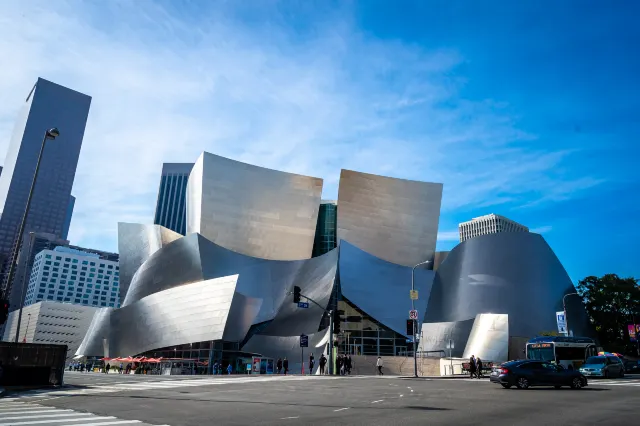
A generation of college students remember (perhaps not fondly) calculus textbooks adorned with the majestic curves Frank Gehry so artfully designed into the Walt Disney Concert Hall. The stainless steel exterior seems to flow, bending in ways no building rightfully should. The matte finish gives the aura of a sleek sculpture. Opened in 2004, the Walt Disney Concert Hall has garnered praise both for Gehry’s exterior masterpiece as well as the hall’s internal acoustics. In addition to the performance spaces, there is also a fine-dining restaurant owned by famed chef Joachim Splichal. Helping to anchor Los Angeles’ world-class arts and culture district, there is plenty to admire in and around the Walt Disney Concert Hall. Make sure to take a stroll through nearby Grand Park as you make your way to an evening performance.
Sultan Ahmed Mosque, Istanbul, Turkey
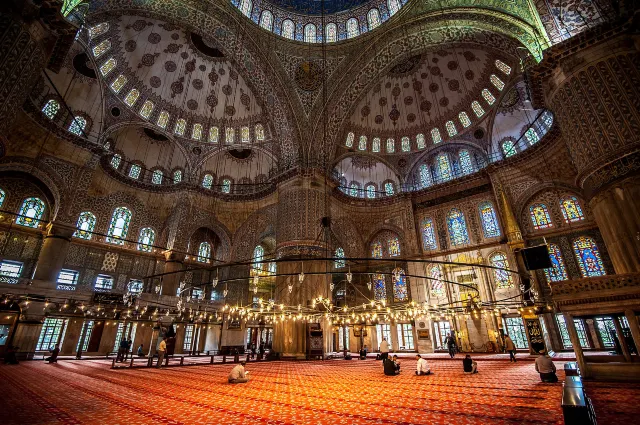
Completed in 1616, the Sultan Ahmed Mosque in Istanbul is one of the world’s finest examples of Islamic and Ottoman architecture. Its six minarets soar gracefully above the bustling streets below. When the light is right, the blue sky and waters of the nearby Bosporus Strait appear to give a mosque a bluish hue, hence its nickname as the Blue Mosque.
The interior features great soaring domes, with walls and columns covered in exquisitely intricate Islamic art fashioned from countless ceramic Iznik tiles. The turquoise and blues characteristic of Iznik patterns reinforce the Blue Mosque moniker. Sometimes aided by artificial lighting, the interior spaces glow in radiant shades of delicate blue. The historic significance of the Sultan Ahmed Mosque adds to its appeal and certainly solidifies its position as an architectural treasure.
Saint Basil’s Cathedral, Moscow, Russia
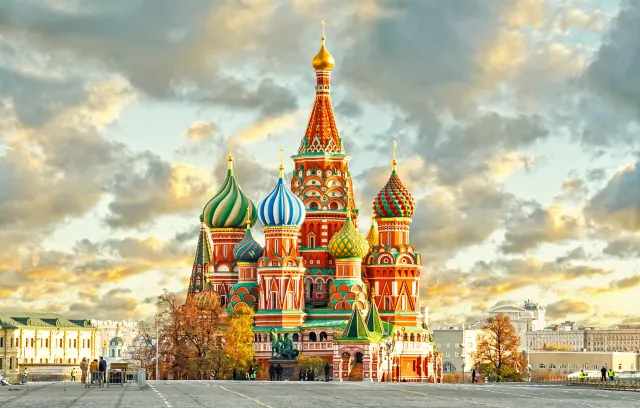
Often mistaken in the West as part of the Moscow Kremlin, Saint Basil’s Cathedral stands outside the Kremlin Walls at one end of Red Square. It is widely regarded as the finest example of Russian Architecture anywhere in the world. Said to resemble flames leaping into the sky, the cathedral’s iconic onion domes are an internationally-recognized symbol of Russia. Construction was completed in 1561 on orders from Tsar Ivan the Terrible to commemorate Russia’s victory in the Russo-Kazan wars. Though affiliated with the Russian Orthodox faith, the cathedral is officially Russian state property, having been expropriated by Soviet authorities in a bid to secularize the country and stamp out religion. Tours are available nearly every day of the year and cost 700 roubles.
Christ the Redeemer, Rio de Janeiro, Brazil

Purists might quibble that Rio’s monumental Christ the Redeemer is more work of art than architectural masterpiece. We find it a fitting addition, however. Completed in 1931, Christ the Redeemer stands 38 meters from pedestal to crown, approximately the same height as the Statue of Liberty in New York Harbor. Set in the hills not far from Copacabana and Ipanema, Christ the Redeemer casts a watchful eye over the bustling Rio streets below. Transportation is available up to the base, which you can ascend for some truly awe-inspiring views. Popular at sunset, the Atlantic waters appear on fire as if the figure of Christ is standing guard against a chaotic world. Recognized the world over, Rio’s Christ the Redeemer is a magnificent cultural treasure.
Great Mosque of Djenné, Djenné, Mali
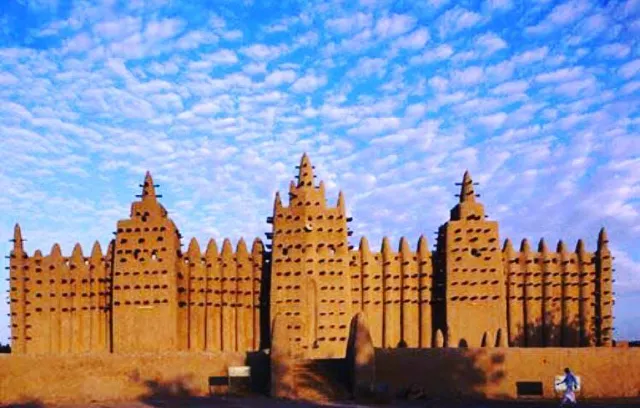
The Great Mosque of Djenné in Mali is arguably the world’s finest example Sudano-Sahelian architecture. Standing in the great Sahel region, the mosque insporates the sandstone colorings reminiscent of the vast desert beyond. Constructed from adobe, records indicate a mosque existing in the site as far back as the 13th century. Rebuilt and expanded over the years, the current structure dates to 1907 when French colonial authorities in West Africa sought to bring back the historic design. The trek from the capital Bamako takes about 8 hours so this isn’t something you can see in a day. Djenné itself is a small outpost with a maze of tangled streets perfect for exploring. Its relative remoteness simply adds to the allure.
Humans have long sought to erect grand monuments, temples, and structures in a bid to leave an indelible mark on history. From the pyramids in ancient Egypt to today’s impressive modernism, architectural styles have evolved as a complex interplay between local conditions, artistic sensibilities, and the physical limits of engineering. The examples we’ve highlighted here stand as magnificent achievements and intangible cultural treasures. As with anything created by humans, however, they will not last. There is perhaps no better time to explore these 10 amazing architectural landmarks than right now.
Trending Travelogues
Popular Trip Moments
Popular Travel Types
Popular Attractions
Popular Ranked Lists
Popular Destinations
Recommended Attractions at Popular Destinations













Site Operator: Trip.com Travel Singapore Pte. Ltd.


